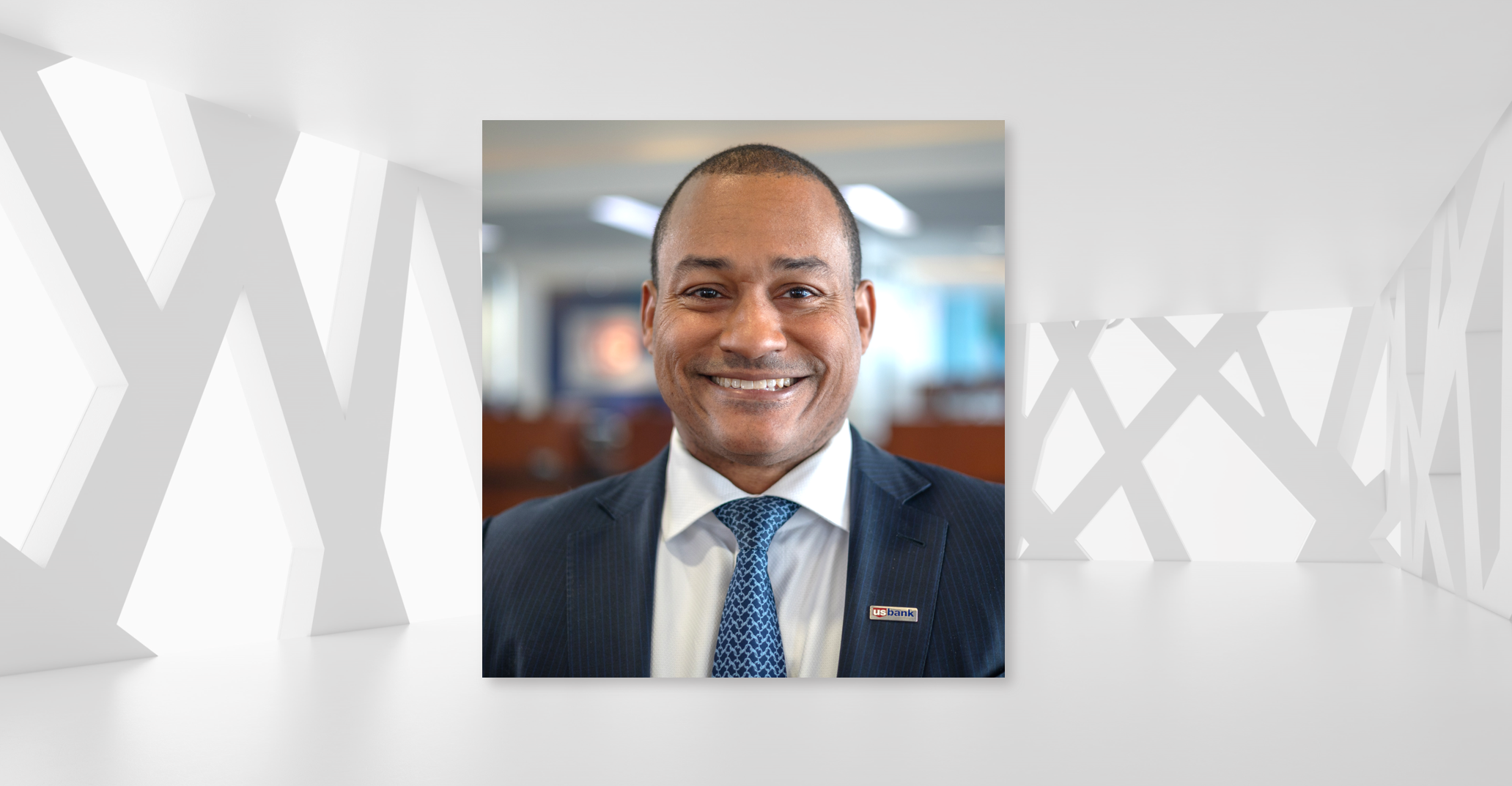Alumnus Sekou Kaalund launched Advancing Black Pathways and continues that focus today in his current role.
Sekou Kaalund calls himself an “accidental banker.” At age five, the former head of Chase Consumer Bank for the Northeast Division told his parents he planned to run for U.S. Senate so he could create laws to help communities in need.
“From a young age, my whole anchoring was on how can I be of service and drive impact,” says Kaalund, head of branch and small business banking at U.S. Bank.
Banking wasn’t even on Kaalund’s radar until he won an award sponsored by the Executive Leadership Council while attending Duke University that offered the opportunity to learn from Black leaders at top companies across the U.S.
“I realized that I could have a greater impact by influencing capital flows and leading people,” Kaalund says, which caused him to pivot his career aspirations.
In a career that’s taken him from the New York Federal Reserve to fifteen years at JPMorgan Chase, Kaalund has helped to narrow the racial wealth gap by bringing more people from underserved communities – including Black Americans — into the financial system and helping them to achieve greater economic success.
Becoming a banker
Kaalund’s first role after earning his master’s degree in public policy was as a senior financial analyst at the New York Federal Reserve. It was a great place to get a primer in the U.S. financial system, he says.
He had a five-year plan to learn everything he could about the financial system at the Fed, and then move on to a career on Wall Street. At four years and eleven months, Kaalund took a job at Citigroup as head of strategy for Securities and Funds Services.
He joined J.P. Morgan in 2007 as the Global Head of Sales for Private Equity Fund Services, managing a team responsible for new business development. His roles over the years spanned lines of business from head of pension coverage to finally his senior role in Chase consumer banking. Kaalund also co-led the Corporate & Investment Bank’s Black Leadership Forum, which promotes the recruitment, development and retention of Black leadership. Perhaps his greatest achievement though was leading a large-scale JPMorgan Chase initiative to support underserved Black communities.
A roadmap for helping the underbanked
In the summer of 2018, Kaalund switched gears from his job ramping up pension coverage in Sales and Trading to lead the creation and development of JPMorgan Chase’s Advancing Black Pathways (ABP) from the ground up. ABP set out to help Black communities pursue homeownership, increase savings and investments, grow entrepreneurial endeavors and access well-paying career paths.
“We were focused on closing the racial wealth gap, and when we built this, I intentionally focused on creating a playbook for any underserved community that could be leveraged,” says Kaalund. “Lots of other initiatives were ultimately birthed out of the initiative.”
Kaalund launched ABP at the National Museum of African American History and Culture in Washington D.C. alongside influential Black leaders including former U.S. Secretary of State and U.S. Army General Colin Powell and co-CEO of Ariel Investments and JPMorgan Chase Board Member Mellody Hobson. Through ABP, JPMC initially committed to hiring 4,000 Black students in five years.
Soon after came a five-week paid, full-time summer fellowship for Black college students. The program drew some fifty applicants from historically black colleges and universities its first year. Now, thousands apply.
Kaalund wove teaching students about financial health into the fellowship. Those lessons extended into the community as well, in the form of financial literacy workshops. The firm’s Currency Conversations workshops for local residents held at Chase branches drew long lines.
“It was a multiplier effect,” says Kaalund. “We wanted to have that impact at scale.”
During Covid-19, through ABP, Kaalund brought unforgettable moments to graduating high school and college seniors, including HBCU-specific graduates, who missed out on their in-person commencements. The Show Me Your Walk campaign included a virtual commencement ceremony for HBCU graduates featuring comedian Kevin Hart and former President Barack Obama amongst others. Event streaming reached 24.2 million people. Kaalund didn’t stop there and launched a four-part career readiness series on LinkedIn for college students navigating a difficult job market during the pandemic, which reached one million viewers.
Advancing Black Pathways celebrates its fifth anniversary this year, in 2024. Current program initiatives are part of the firm’s $30 billion commitment by the end of 2025 to break down barriers of systemic racism.
Know your why and your purpose
When Kaalund originally agreed to lead ABP, some wondered why he would step away from the business and his successful career trajectory, he says.
“I told them, I know my why and my purpose, that it was time for me to do something that could be transformational, that I thought could ultimately open other doors.” It did. His ABP experience was a turning point that led him to his current role.
Now in his leadership position at the country’s fifth largest bank, Kaalund is responsible for U.S. Bank’s more than 2,200 branches and the consumer and small business bankers spread out across 26 states.
His work still entails leading efforts to invest in diverse communities. The financial services industry is making, and it can continue to make, a significant impact in driving positive change in society, Kaalund says.
“We’re in business to drive business, but we can also be impacting communities,” says Kaalund. “It doesn’t have to be mutually exclusive. Making the economy work for more people is both a moral obligation and a business imperative.”
When Kaalund is asked for career advice, his words of wisdom are simple: “Stay anchored on your beliefs because that way you will make a bigger difference than you ever thought possible.”



